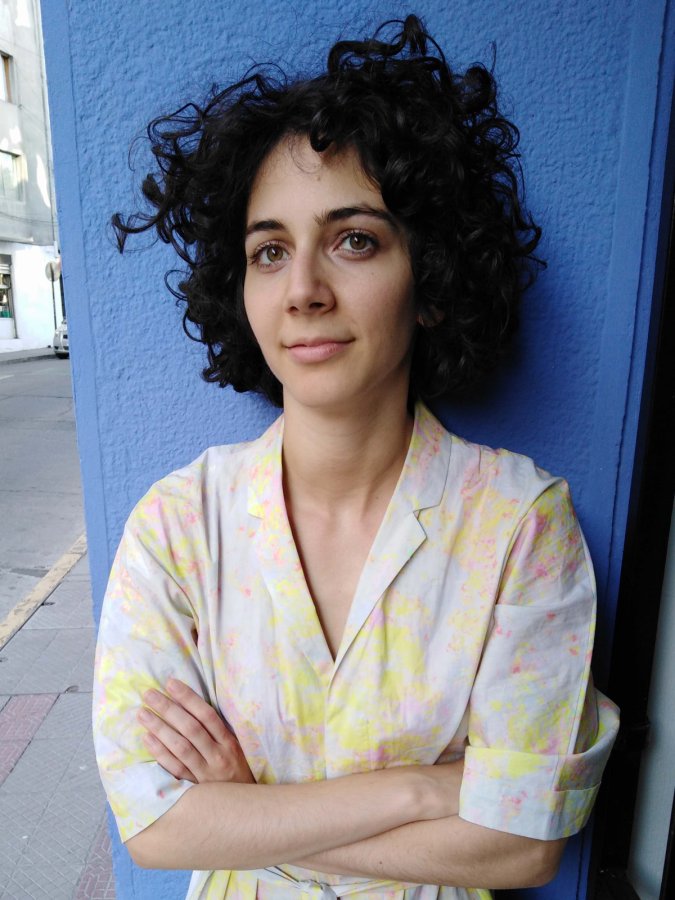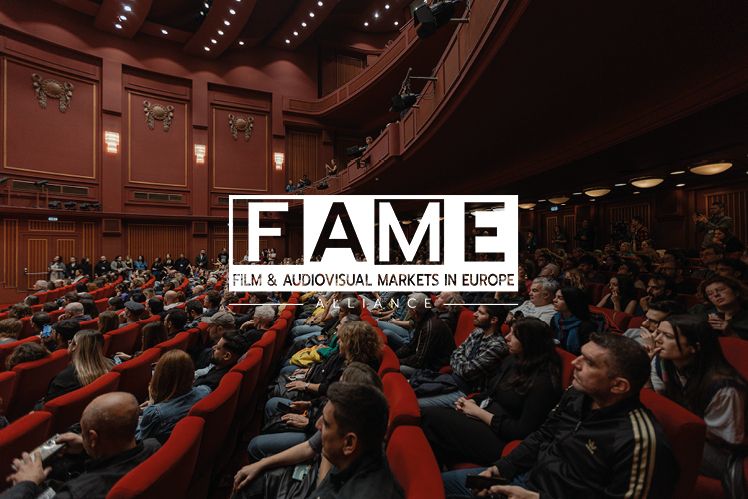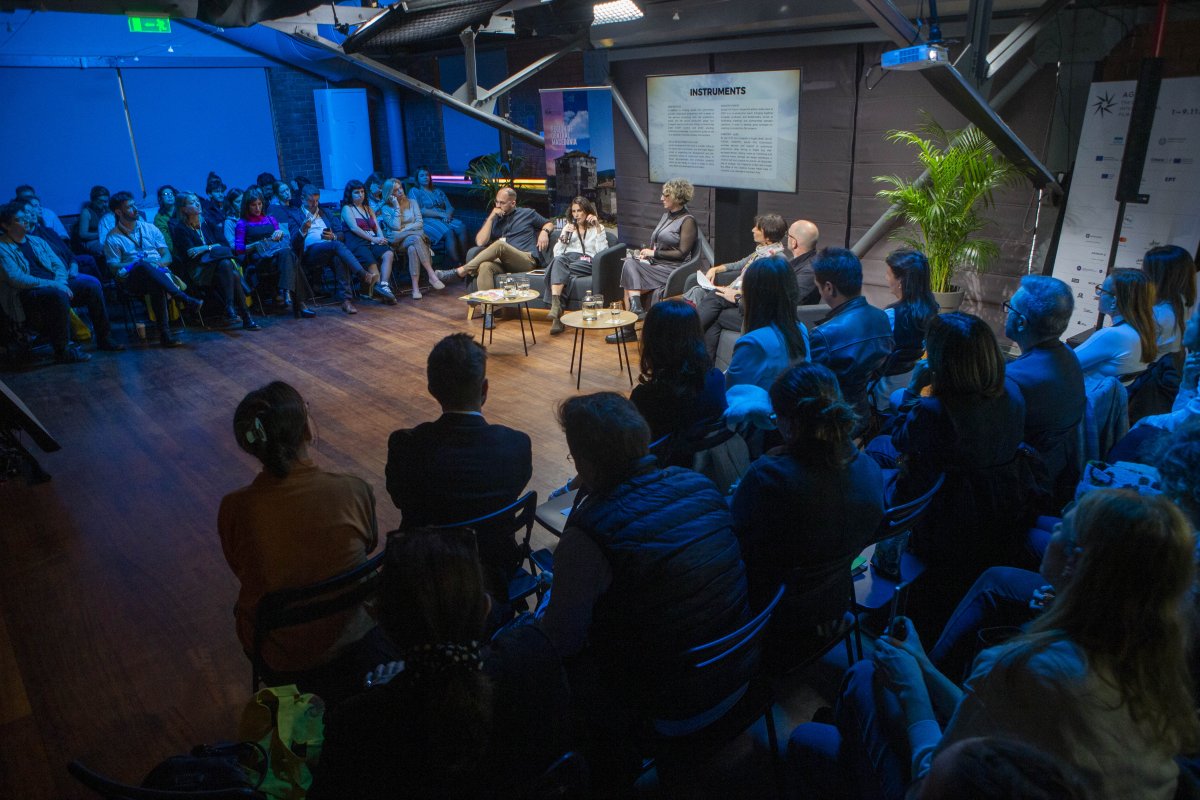57th THESSALONIKI INTERNATIONAL FILM FESTIVAL
November 3-13, 2016
LUCIANO TOVOLI MASTERCLASS
“A master of light”
A legendary alchemist of light, the Italian director of photography Luciano Tovoli unveiled moments of his spectacular career and the professional secrets that made him famous, in an extremely interesting masterclass that took place on Friday, November 11, in the packed Pavlos Zannas theatre, as part of the 57th Thessaloniki International Film Festival.
Luciano Tovoli’s presence at this year’s edition is “an honor to the festival”, said TIFF’s director Orestis Andreadakis, calling Tovoli a “maestro” and adding: “Luciano Tovoli participates in the 57th TIFF with the latest film he did the cinematography for, A Jew Must Die, directed by Jacob Berger. Mr. Tovoli has worked with renowned film directors such as Michelangelo Antonioni in the film The Passenger and Barbet Schroeder in Murder by Numbers, as well as prominent actors like Julie Taymor in the film Titus and Nanni Moretti in Bianca”. Mr. Andreadakis also stressed that Mr. Tovoli had visited Thessaloniki 30 years ago, on the occasion of making the film adaptation of the book “Weak Spot” by Antonis Samarakis with Ugo Tognazzi and Michel Piccoli.
Restless and witty 80-year-old Luciano Tovoli delivered the masterclass standing, holding a microphone in his hand, going up and down the stage of the theatre. He noted that Thessaloniki has changed a lot since the first time he visited the city, 30 years ago. “I was impressed by how much the city has got bigger and I’m glad I was given the chance to come to the Festival”, he said. He also stressed that during the ‘Weak Spot’ shootings he will never forget Tognazzi, who was always grumbling about the sun and the blue sky “asking for breaks with the pretext that the light was not good, so that he could go to the fish market and bring us fish”.
Luciano Tovoli considers himself a cameraman, a cinematographer and a director of photography. As he noted: “All these words describe the same profession. When the American film directors founded their union, Directors Guild of America, cinematographers wishing to have the film directors’ privileges chose to be called ‘directors of photography’, which proved to be of little use to them. Today we go back to the term ‘cinematographer’. I like the term ‘cinematography’, it comes from the ancient Greek words ‘graphein’ [to record] and ‘kinema’ [movement, motion], and since we are in Greece you know what I’m talking about: what I was interested in was how you can record light in one move”.
Unfolding the thread of his cinema career, which spans more than half a century, Tovoli reached his first film, Bandits of Orgosolo by Vittorio de Seta. Mr. Tovoli recalled regarding the film: “We found ourselves on Sardinia’s mountains, where we lived for six months among shepherds. The director worked on a fiction film with sound and image, and with no commentary at all, based on the everyday life of shepherds taking to the hills and becoming bandits. We suddenly found ourselves in a neo-realist film, which was something in between documentary and fiction. For me, cinema means documentary, there is no distinction between fiction and documentary. There is always a common denominator, we want to present on screen a situation which can be either real, or fiction”.
Mr. Tovoli made a lot of films afterwards, but “my passion was to be a reporter, not a director of photography”, as he revealed. He was particularly interested in social issues and the direction of photography helped him get closer to his dream of becoming a reporter. “In 1974, also with de Seta, we shot an important film, Un ano en Pietralata, in the suburbs of Rome, in regions with serious social issues. We recorded a public school that was expelling students, who consequently were getting involved with robberies. The director met with the children and their parents, appealed to the Ministry of Education and managed to bring back the students to the same school. Thanks to the camera, the situation may have changed. Four months later, these young boys who had been involved with robberies got better grades than the others in the exams. The film was a great success; it was also broadcasted by RAI television. That’s how we saw the passion for social reportage converting to cinema”.
Luciano Tovoli made special mention to the collaboration with Michelangelo Antonioni in the 70s, starting with his documentary China on Mao Zedong’s communist China. “Antonioni was the ultimate legend and I was surprised when I received a phone call by him asking me to go to China with him. Mao’s China was for us an unknown country, we knew more or less what was happening, but it was not much. For me, photography is much more related to politics and society than to technique. So we found ourselves in China during the Cultural Revolution -actually we shouldn’t speak of cultural revolution, since all intellectuals were being pursued- invited by the Chinese government and under constant surveillance. We stayed there for a number of months and when we came back we screened the film in Washington, in the presence of the Chinese ambassador, and scandal erupted. All the Chinese delegation left the screening, the film was censored and did not screen in China for 30 years. They accused us of being capitalists, of showing an aspect of China which did not respond to reality and of having committed mistakes that I was responsible for”.
Asked about his art’s secrets in shooting the film Bandits of Orgosolo, Luciano Tovoli replied: “Time is the secret. We went to Sardinia for 15 days and we ended up staying for 8 months. I stayed alone with the camera and the shepherds in the beautiful mountains, there were days when I didn’t work, I was just hanging around, eating cheese and drinking wine. And thus a shepherd led me to places which otherwise were hard to reach. I had the time”.
The film The Passenger by Michelangelo Antonioni is a milestone in Tovoli’s career. “After China I thought I was done with Antonioni, we had become friends and I presumed I wouldn’t work with him again. Suddenly he calls me and says I have to be there the next day because he would start shooting the film The Passenger with Jack Nicholson, who was just kick-starting his career at the time. I went to Munich and found a crew I knew nothing about, which is hard, because with new crews you have to explain everything from scratch. They were professionals, they had made many more movies than I had, and they had big equipment, a heavy one, with cranks. It was like a surgical operation. Today all this has become easier. At the time I had to show trust in partners I knew nothing about. Antonioni told me ‘do it as if it were China’ and I said ‘but there’s Jack Nicholson’, and he replied ‘do it as if he were Chinese!’”. Speaking about this milestone film, Mr. Tovoli revealed the audience how he is to blame for the scar that Nicholson got for life on his neck, when during shooting the actor accidentally hit one of the huge lamps used for lighting and got burnt. “I just did what Antonioni had told me. This proves that we have to listen to the film director, but not to the letter”, Mr. Tovoli added humorously.
He described in detail how he shot in The Passenger the superb last long take of the film, which gave him a hard time due to the contrast between outdoor and indoor lighting, and to countless technical issues. “Antonioni was telling me that in this take he wanted us to move from a subjective to an objective point of view. To me, that I’m not a philosopher, that sounded weird. We were shooting for almost an entire week; the camera almost broke, a cable fell in the middle of the setting, because the assistant had not put enough adhesive tape, and on top the gyroscopes broke, while the wind was blowing, impeding the shooting, and the producer, Carlo Ponti, was mad because we were behind schedule, and called Antonioni ‘a lunatic’. Anyway, the shot was taken and ended up becoming a case study in film schools. It took us a whole week for just one shot. You realize it needs time, and that is the key point”.
TIFF’s President of the Board of Directors and director of photography Yorgos Arvanitis was also present in the masterclass and thanked Luciano Tovoli for participating in this year’s edition. As he said, he was often inspired in his work by the Italian director of photography’s technique. “I learned a lot from your work. This shot in The Passenger was proven important for my career. It is fantastic because it features an amazing use of the outdoor/indoor lighting combination”, he noted. On his part, Luciano Tovoli thanked Mr. Arvanitis saying that “It is a pleasure when someone you respect so much praises your work”.















